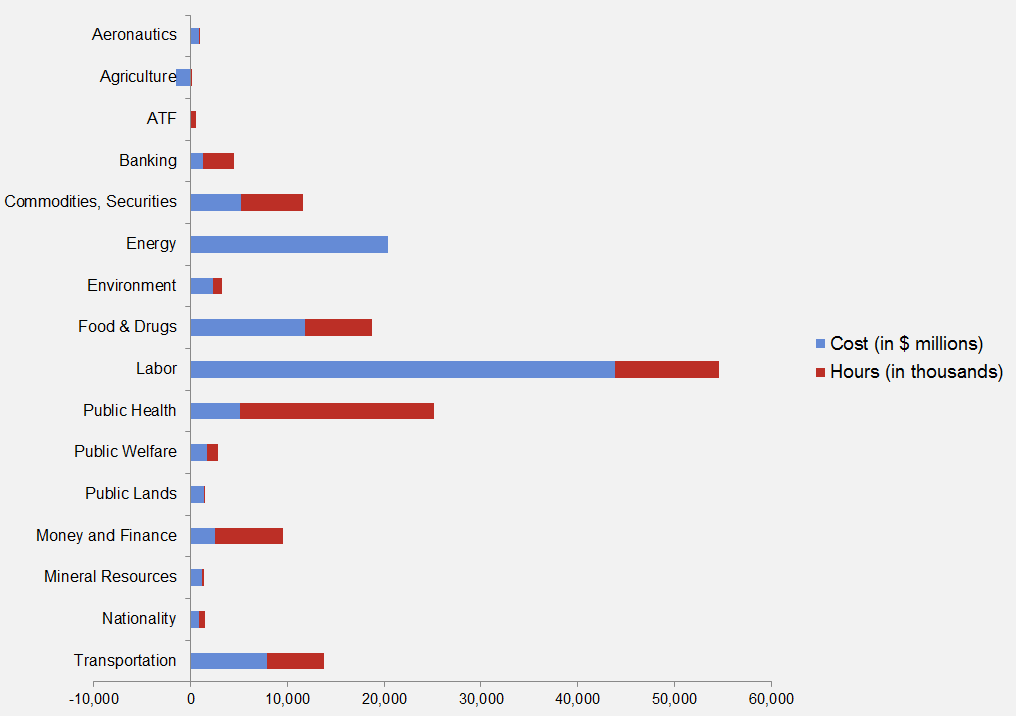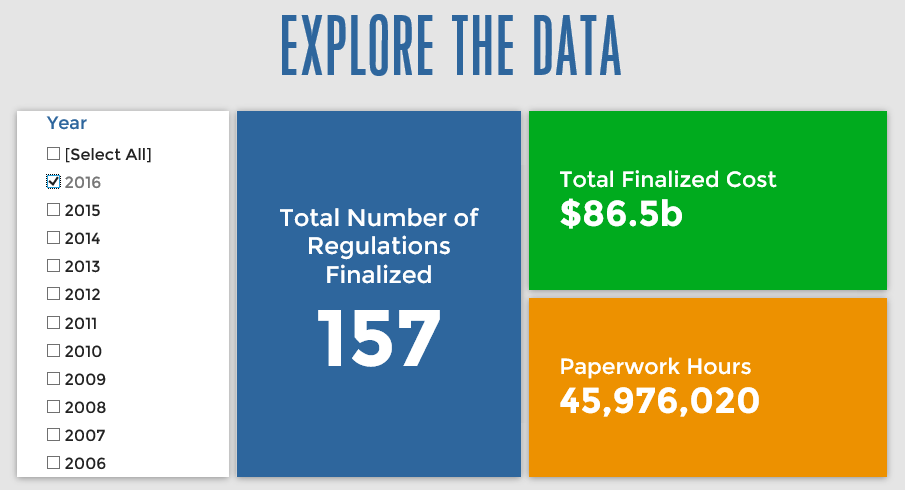Week in Regulation
June 13, 2016
A Restful $323 Million in Regulation
Aside from a voluminous Dodd-Frank proposal that consumed a decent chunk of Friday’s Federal Register, it was a relatively quiet week in regulation. Regulators added $323 million in costs; annualized burdens were $84 million compared to just $4 million in monetized costs. Paperwork burdens accelerated by more than 780,000 hours. The per capita regulatory burden for 2016 is $333.
Regulatory Toplines
- New Proposed Rules: 52
- New Final Rules: 97
- 2016 Total Pages of Regulation: 38,060
- 2016 Final Rules: $86.4 Billion
- 2016 Proposed Rules: $21.2 Billion
The American Action Forum (AAF) has catalogued regulations according to their codification in the Code of Federal Regulations (CFR). The CFR is organized into 50 titles, with each title corresponding to an industry or part of government. This snapshot will help to determine which sectors of the economy receive the highest number of regulatory actions.
The Department of Energy proposed a program for “Chronic Beryllium Disease Prevention,” which applies to agency employees and federal contractors who are exposed to the element. Beryllium is an issue at agency sites because it is often used in nuclear weapons and reactors. The proposal could cost upwards of $120 million in present value burdens; benefits were not monetized.
The Department of Labor proposed a mine safety measure that would require mine operators to identify and correct unsafe working conditions. A “competent person” is required to inspect mines before work is commenced, take corrective action if needed, and notify miners and their representatives of the conditions. The proposal adds roughly $100 million in costs and more than 300,000 paperwork burden hours.
Affordable Care Act
Since passage, based on total lifetime costs of the regulations, the Affordable Care Act has imposed costs of $48.5 billion in final state and private-sector burdens and 171.4 million annual paperwork hours.
Dodd-Frank
A cadre of six different regulators proposed a 170-page Dodd-Frank rule to limit “Incentive-Based Compensation Agreements.” This measure would require that companies disclose these agreements to regulators and the rule could prohibit them if the agencies decide they would lead to excessive risk or provide “excessive compensation.” The proposal is light on specifics, but estimates costs of $50 million, with more than 160,000 paperwork hours.
Click here to view the total estimated revised costs from Dodd-Frank; since passage, the legislation has produced more than 73.9 million final paperwork burden hours and imposed $36.2 billion in direct compliance costs.
Total Burdens
Since January 1, the federal government has published $107.7 billion in compliance costs ($86.47 billion in final rules) and has imposed 65.3 million in net paperwork burden hours (45.9 million from final rules). Click below for the latest Reg Rodeo findings.












